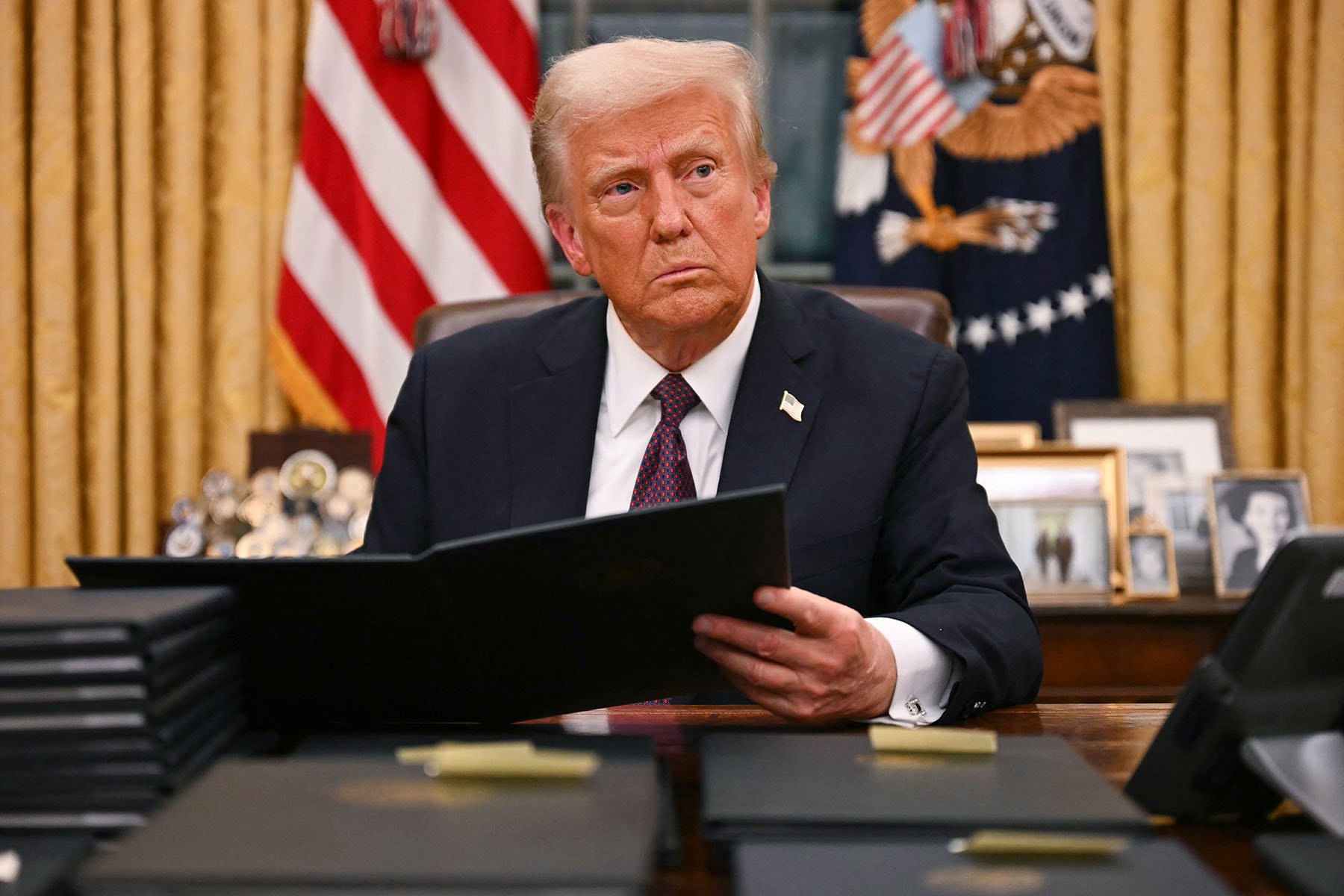President Donald Trump signed an executive order Monday that seeks to withhold U.S. citizenship from the children of undocumented immigrants born in the United States — seeking to end a right that the U.S. Constitution has guaranteed for more than 150 years.
The executive order, which would apply to any babies born after February 19, was quickly challenged in court given that it would constitute an extraordinary departure from the historic interpretation of the Constitution’s 14th Amendment, which states that “all persons born” in the United States “are citizens of the United States and of the State wherein they reside.”
Trump’s attempt to end birthright citizenship could leave an untold number of newborn babies in legal limbo while their undocumented parents, including newly postpartum women, are left to navigate a complicated new landscape that threatens their own deportation.
The order, “Protecting the Meaning and Value of American Citizenship,” was signed just hours after Trump took office. “That’s a big one,” Trump said as he signed the order from the Oval Office, adding that he believes his administration has “very good grounds” on which to defend the policy. “People have been wanting to do this for decades.”
The incoming administration will make the case that a reinterpretation of the 14th Amendment will allow the administration to exclude two categories of infants from the right to U.S. citizenship: Infants born to a mother who is unlawfully in the country and a father who is not a citizen or permanent resident, and infants born to a mother who is authorized to be in the country for a temporary period of time and a father who is not a U.S. citizen or permanent resident.
The latter group includes people in the United States with a work, student or tourist visa.
The order does not address queer or nonbinary couples, defining mother and father as male and female “biological progenitors.”
The administration could bar the Social Security Administration from issuing Social Security numbers and cards to these babies. Parents typically request these documents upon their babies’ birth at the hospital, along with the application for a birth certificate, which is issued by the state where the birth happened. Without U.S. citizenship, these babies would not qualify for passports, leaving them without access to another form of identification and also unable to travel.
The birthright citizenship order was among several other new immigration policies rolled out Monday designed to deliver on Trump’s promises to reduce immigration and deport millions of immigrants.
The executive order was quickly challenged in court. The American Civil Liberties Union (ACLU) and several of its state branches filed a lawsuit on behalf of three immigrant advocacy groups, arguing that the order violates the Constitution and would deny impacted infants basic health care and nutrition.
“This order seeks to repeat one of the gravest errors in American history, by creating a permanent subclass of people born in the U.S. who are denied full rights as Americans. We will not let this attack on newborns and future generations of Americans go unchallenged,” said Anthony D. Romero, executive director of the ACLU.
Another lawsuit, filed by the Lawyers for Civil Rights and two Massachusetts-based immigrant advocacy groups, argues that the policy would essentially strip citizenship rights from newborn infants and their parents and that is akin to punishment and unconstitutional. The lead plaintiff is a pregnant woman who is due in March.







